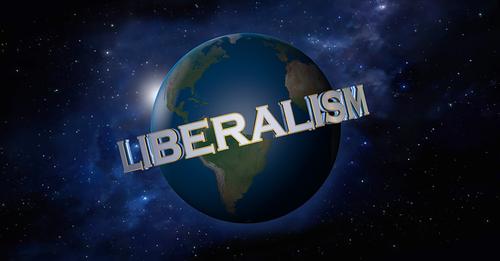Liberty Matters
In the End, What Can We Learn from Pareto?
 Given the direction in which this conversation has been going, I wish to return a point that I made at the end of my initial post, which suggested a "Paretian solution" to a problem of liberalism. As Mingardi has clearly discussed throughout the conversation, Pareto was, at best, pessimistic about the future of classical liberalism, given the emergence of "demagogic plutocracy."
Given the direction in which this conversation has been going, I wish to return a point that I made at the end of my initial post, which suggested a "Paretian solution" to a problem of liberalism. As Mingardi has clearly discussed throughout the conversation, Pareto was, at best, pessimistic about the future of classical liberalism, given the emergence of "demagogic plutocracy."The tragedy of democracy, from Pareto's perspective (as described by Mingardi), is that the very institutional conditions that liberated the poorest and least advantaged in society later became undermined by political competition among the working classes seeking political enfranchisement. Such competition would later manifest unintentionally as demagogic plutocracy as a result of the elites allying themselves with the working classes in an effort to maintain power through force. This story bears a striking similarity to Hayek's The Road to Serfdom (1944) in explaining the tragedy of how the worst got on top in politics in Germany, Italy, and the Soviet Russia from the good intentions of prior generations of socialists. This is ultimately a tragedy because it is an unintended societal outcome that emerges from good intentions.
Is such an outcome "efficient"? Not for Pareto, for if this were the case, it would not be a tragedy. As Becchio discussed previously, Pareto differed from Walras with respect to social theorizing in that Pareto was a social theorist who employed invisible-hand theorizing. Though all human action is rational in that the outcomes of individual action are a result of reason, societal outcomes, both economic and political, only emerge indirectly from reason and intentions. Therefore, individual intentions cannot be inferred from social outcomes.
However, is such a tragedy "Pareto-optimal"? This is indeed the case if, and only if, we restrict our analysis to the interaction that plays out within a set of rules. As Tollison and Wagner (1991) suggest, economic reform that takes place within a set of rules would require an expenditure of resources that is not a Pareto improvement. This is because the resources that would be expended to eliminate existing interest groups from preventing reform would exceed the total economic benefits of the reform itself, resulting in a "transitional gains trap." (Tullock 1975)
Though the political tragedy to which Pareto was referring applied to Europe, what can we learn from Pareto today in order to prevent this tragedy from reemerging, particularly given our current age of populism, to which Mingardi referred? The advancement of classical liberalism can only proceed from a realistic understanding of the margins on which reform can be suggested.
To the extent that such populism can be traced to the perception of rising inequality, one remedy to combat such inequality, consistent with classical liberalism, is the elimination of corporate welfare and other legal privileges that benefit the politically connected at the expense of the rest of society.
However, if economic reform cannot achieve Pareto improvements within a set of rules, what Pareto's analysis suggests is that the role of the political economist is to be realistic about the present by taking the existing political status quo as a given. From this status quo, the realistic basis for optimism is not only in the political economist's ability as a scientist to illustrate the seen and unseen effects of alternative public policies. It is also in the political economist's ability as a reformer to suggest changes in rules that are potential Pareto improvements to society over time.
The prevention of Pareto's tragedy cannot come from an abandonment of democracy. Rather, it requires an embracing of democratic deliberation, but deliberation within rules that conform to an ideal of unanimity, as Buchanan and Tullock (1962) suggest. To the extent that competition in the political sphere cannot be eliminated, our only hope is to channel such competitive behavior in a way that concentrates not only the costs but also the benefits of political action on the decision-maker in order for political processes to parallel, as closely as possible, the beneficial outcomes of market processes.
Copyright and Fair Use Statement
“Liberty Matters” is the copyright of Liberty Fund, Inc. This material is put on line to further the educational goals of Liberty Fund, Inc. These essays and responses may be quoted and otherwise used under “fair use” provisions for educational and academic purposes. To reprint these essays in course booklets requires the prior permission of Liberty Fund, Inc. Please contact oll@libertyfund.org if you have any questions.